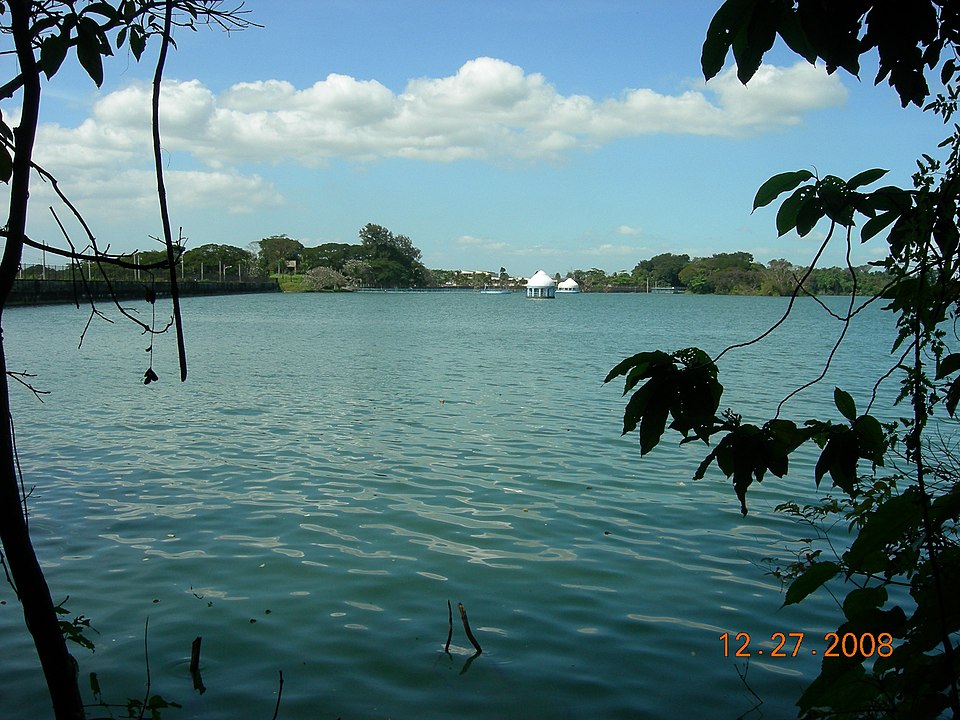News
PBBM order creating water management office timely – Poe

Water is also crucial to food security and supporting cities and urban growth. (File photo by dnumde, CC BY-SA 3.0)
MANILA – Senator Grace Poe on Thursday lauded the signing of President Ferdinand R. Marcos Jr. of an executive order creating a Water Management Office (WMO) to deal with the country’s water crisis as a “timely intervention.”
“We expect that this development lays down the groundwork for a more integrated and holistic approach to the water problem. A whole-of-government approach is also necessary to tackle the issues of sourcing and misuse of water in the country,” Poe said in a statement.
The chairperson of the Senate Committee on Public Services added that she hopes the establishment of the WMO will “alleviate the creeping water crisis in the country” while proposed bills to create a Department of Water Resources are still pending in Congress,
Poe issued the statements after Marcos announced during the 6th Water Philippines Conference and Exposition in Pasay City that he had already signed the EO creating the WMO to enable the government to make a more cohesive policy in addressing the water crisis.
In supporting the President’s move, the lady lawmaker pointed out that as an archipelago surrounded by water, it is ironic that the Philippines has to experience water crisis due to a fragmented resource management.
“Currently, at least 30 line-agencies are tasked with the administration of water in the country resulting to policy and regulatory conflicts among these agencies,” she noted.
She assured that the legislative and executive departments are working hard to create a “lasting solution” in the form of a new water reform bill “to ensure sufficient, clean and affordable water for all Filipinos.”
Earlier, Senator Pia Cayetano told her colleagues that lawmakers must do more in terms of budgetary support for access to clean water.
“I speak as your chairperson of the Committee on Sustainable Development Goals, Innovation and Futures Thinking. Ano ang future ng Pilipinas kung wala tayong sapat na tubig (What is the future of the Philippines without enough water)?,” Cayetano said In her privilege speech Wednesday.
To address water insecurity in the country, Cayetano noted that the national government has taken steps to mitigate and provide a sustainable water supply to all, citing the Philippine Water Supply and Sanitation Master Plan that the National Economic and Development Authority (NEDA) released in 2019.
“This serves as the national action plan to achieve universal access. [Department of Health] DOH as well has in its 2023 Environmental and Occupational Health Line Item where PHP86.1 million is allotted,” Cayetano said as she assured that she is willing to lead Senate hearings focusing on water issues.
Senate President Pro Tempore Loren Legarda also called on Wednesday for the development of sustainable water management.
“Water is life, and it affects everyone. As the theme for the observance of World Water Day this year implies, we must accelerate change. This means that we must increase our efforts to save our water resources and ensure a sufficient water supply for present and future generations,” she said.
“Small changes can go a long way. Starting from our homes and workplaces, we can protect and save our water by changing how we use and consume it. There are a lot of simple and easy ways to conserve water, and we must stop disposing pollutants to our rivers,” Legarda said, as she also urged women worldwide to lead campaigns in water preservation to help address the global water crisis.
The World Meteorological Organization estimates that around 3.6 billion people worldwide struggle to have access to sufficient and clean water.
In the Philippines, the National Water Resource Board reported that some 11 million families lack access to clean water and are forced to rely on deep wells, springs, lakes and rainwaters.
Water is also crucial to food security and supporting cities and urban growth.
Based on government data, irrigation accounts for a 35.6 percent contribution to the agriculture sector’s Gross Value Added.
The Philippines ranks among the world’s rapidly urbanizing countries, with over 47 percent of its population living in cities in 2021, requiring large water projects, including bulk water supply and sanitation infrastructure.
It also has a significant part in the country’s energy mix, as hydropower represents 7 percent of the total energy production in the country, and its contribution can be increased by as much as 15 percent by 2030.





















